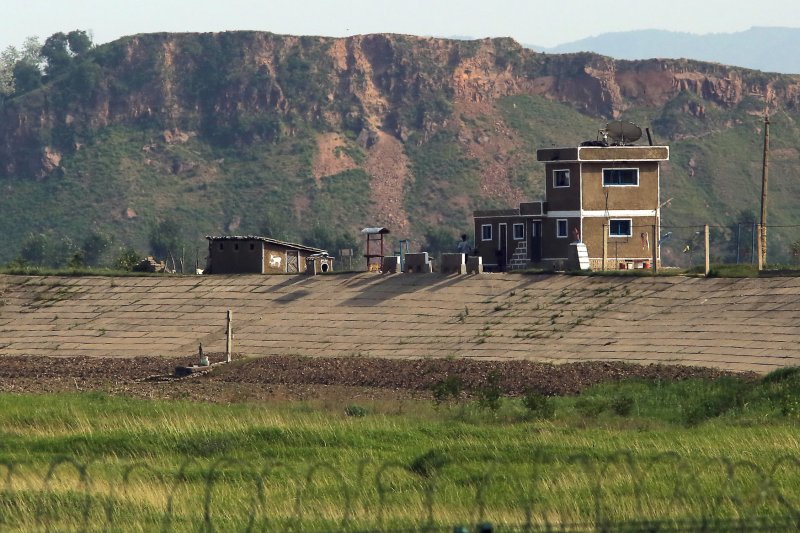A North Korean border sentry outpost stands watch near Sinuiju, across the Yalu River from Dandong, China's larger border city with North Korea. The ongoing drought and low water levels throughout the country are having an impact on the power supply. Photo by Stephen Shaver/UPI |
License Photo
SEOUL, June 25 (UPI) -- It takes an hour to boil water and two hours to heat an oven to 200 degrees in Pyongyang, North Korea.
Those delays, however, are probably the least of a long list of inconveniences for a country that has faced a critical power shortage for 30 consecutive years.
Elevators stop mid-operation in North Korea's capital during blackouts, and a Swiss diplomat in the city told Voice of America it is not uncommon to experience outages three to four times a day.
Still, said Thomas Fisler, head of the Swiss mission in Pyongyang, the outages are an improvement from the past winter, he told VOA on Wednesday.
Fisler said that during winter, hours would go by without electricity. In a worst-case scenario, the power would go out every hour.
The Swiss envoy said the ongoing drought in North Korea is a likely culprit behind the dip in electricity.
According to The Washington Post, North Korea relies heavily on hydroelectric power, and the water in dams and rivers, in order to supply electricity.
The ongoing drought and low water levels throughout the country are having an impact on the power supply. As a result, drinking water also has become scarce.
North Korea acknowledges the seriousness of the drought. The state's media outlet KCNA said even rain in the harvesting region of Hwanghae province between June 11 and 20 has not helped agriculture to fully recover from the dry weather.
North Korea produces less than 5 percent of power generated in South Korea, but has roughly a population of 24.9 million.















